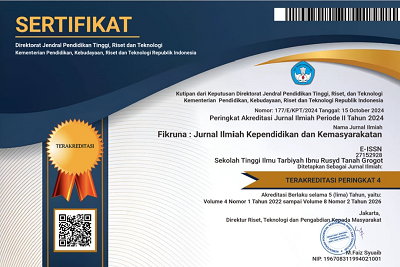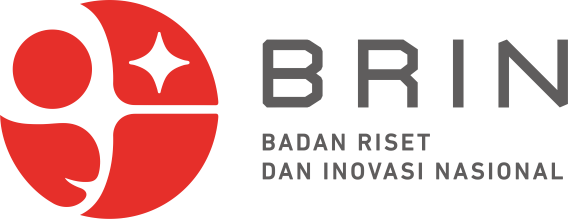LANDASAN FILOSOFIS PEMBELAJARAN BERDIFERENSIASI: (STUDI KASUS PADA ANAK AUTIS DI SLB NEGERI GARUT BAG. B)
Abstract
This study aims to identify the philosophical foundations underpinning the implementation of differentiated learning for children with autism at SLB Negeri Garut Bagian B. Differentiated learning is considered crucial in addressing the needs, interests, and abilities of students with special needs, such as autism. This research adopts a qualitative approach using a case study method, gathering data through classroom observations, interviews with teachers and parents, as well as document analysis related to the curriculum and learning strategies implemented at the school. The findings reveal that the philosophical foundations of differentiated learning at SLB Negeri Garut are based on three main principles: constructivism, pragmatism, and pedagogical ethics that value students' cognitive and socio-emotional diversity. The implementation of this strategy has shown positive impacts on increasing student engagement, mastering academic skills, and enhancing their socio-emotional development. The learning process focuses on respecting individual diversity, adapting teaching methods, and fostering students' holistic potential. Curriculum adjustments and the use of multisensory approaches have proven effective in improving the engagement and capabilities of students with autism. However, challenges persist in the provision of resources, teacher training, and consistent policy support. This study is expected to contribute to the development of inclusive education policies in Indonesia.
Keywords: differentiated instruction, philosophical foundation, inclusive education, autistic children
References
American Psychiatric Association, Diagnostic and Statistical Manual of Mental Disorders (DSM-5), Arlington, VA, American Psychiatric Publishing, 2013.
Arikunto, S., Prosedur Penelitian: Suatu Pendekatan Praktik, Yogyakarta, Penerbit Rieka Cipta, 2010.
Ayres, A. J., Sensory Integration and the Child, Los Angeles, CA, Western Psychological Services, 1972.
Badan Standar Nasional Pendidikan, Panduan Pengembangan Indikator, Jakarta, Badan Standar Nasional Pendidikan, 2010.
Bahri, A., Pendidikan Inklusif dalam Perspektif Keadilan Sosial, Jurnal Pendidikan Inklusif, Vol. 8, No. 2, 2021, hlm. 45�58.
Borg, W. R., & Gall, M. D., Educational Research: An Introduction, Boston, Pearson, 2003.
Braun, V., & Clarke, V., Using Thematic Analysis in Psychology, Qualitative Research in Psychology, Vol. 3, No. 2, 2006, hlm. 77�101.
Creswell, J. W., Research Design: Qualitative, Quantitative, and Mixed Methods Approaches, Thousand Oaks, CA, Sage Publications, 2014.
Dewey, J., Experience and Education, New York, Macmillan, 1938.
Dunn, W., The Sensory Profile: Examiner�s Manual, Psychological Corporation, 2001.
Freire, P., Pedagogy of the Oppressed, New York, Herder and Herder, 1970.
Grandin, T., The Way I See It: A Personal Look at Autism and Asperger's, Future Horizons, 2015.
Handojo, Y., Autisme pada Anak, Bandung, BIP Kelompok Gramedia, 2014.
Koswara, D., Pendidikan Bagi Anak Berkebutuhan Khusus Autis, Jakarta, Luxima, 2013.
Kvale, S., Doing Interviews, Thousand Oaks, CA, Sage Publications, 2007.
Lord, C., Elsabbagh, M., Baird, G., & Veenstra-Vanderweele, J., Autism Spectrum Disorder, The Lancet, Vol. 392, No. 10146, 2020, hlm. 508�520.
Mutmainah, S., & Rofek, A., Model-Model Pembelajaran, Malang, Literasi Nusantara, 2022.
Patton, M. Q., Qualitative Research and Evaluation Methods, Thousand Oaks, CA, Sage Publications, 2015.
Prizant, B. M., et al., The SCERTS Model: A Comprehensive Educational Approach for Children with Autism Spectrum Disorders, Baltimore, Brookes Publishing, 2006.
Sarwono, J., Metode Penelitian Kuantitatif dan Kualitatif, Yogyakarta, Graha Ilmu, 2006.
Sugiono, Metode Penelitian Pendidikan: Pendekatan Kuantitatif, Kualitatif, dan R&D, Bandung, Alfabeta, 2013.
Surachmad, Pengantar Penelitian Ilmiah: Dasar Metode Teknik, Bandung, Tarsito, 1982.
Suyatna, A., Pengantar Metodologi Penelitian Pendidikan Bahasa, Bandung, Fakultas Pendidikan Bahasa dan Seni, 1994.
Tomlinson, C. A., How to Differentiate Instruction in Mixed-Ability Classrooms, Alexandria, VA, ASCD, 2001.
Tomlinson, C. A., The Differentiated Classroom: Responding to the Needs of All Learners, Alexandria, VA, ASCD, 2014.
Vygotsky, L. S., Mind in Society: The Development of Higher Psychological Processes, Cambridge, MA, Harvard University Press, 1978.
Wetherby, A. M., & Prizant, B. M., Autism Spectrum Disorders: A Transactional Developmental Perspective, Brookes Publishing, 2000.
Wulandari, R., & Hendriani, T., Strategi Pengajaran Berdiferensiasi dalam Pendidikan Inklusif, Jurnal Pendidikan Khusus, Vol. 15, No. 3, 2021, hlm. 78�90.
Yuwono, A., Pendidikan Inklusif: Prinsip dan Praktik, Jakarta, Pustaka Edukasi, 2021.
Copyright (c) 2025 Rani Noeraeni, Syihabuddin Syihabuddin, Yeti Mulyati

This work is licensed under a Creative Commons Attribution-NonCommercial 4.0 International License.



.png)












